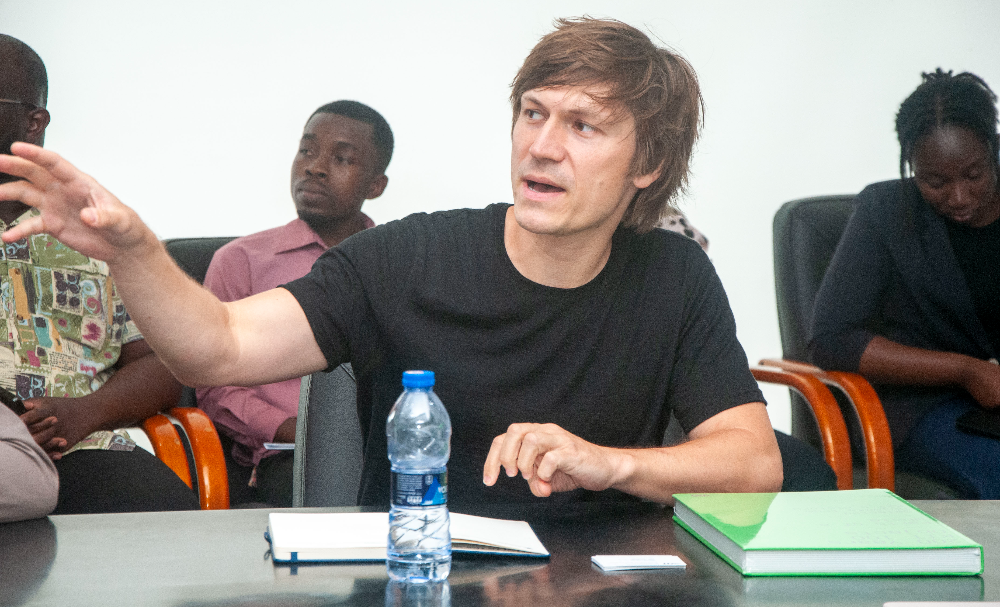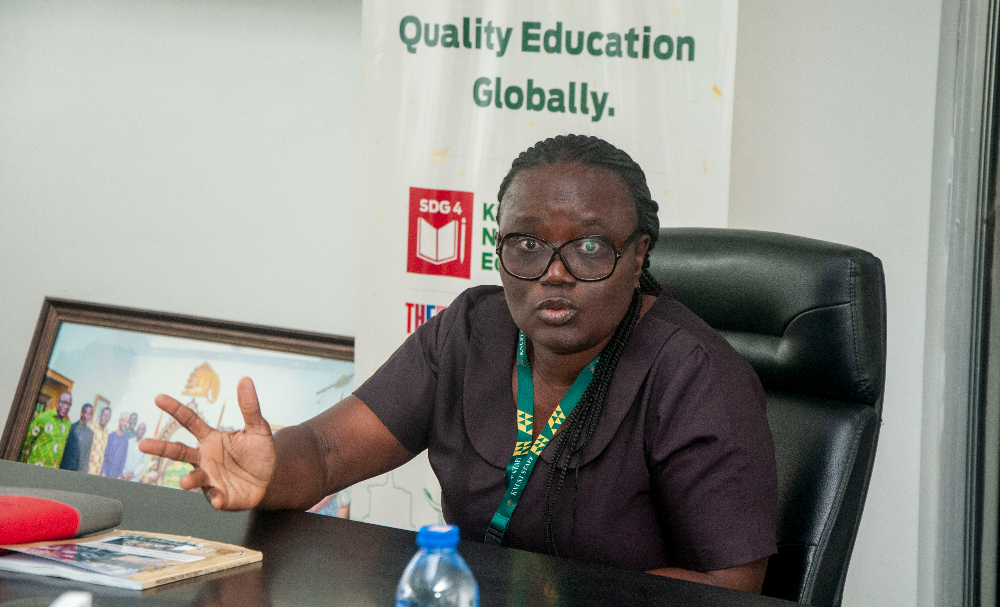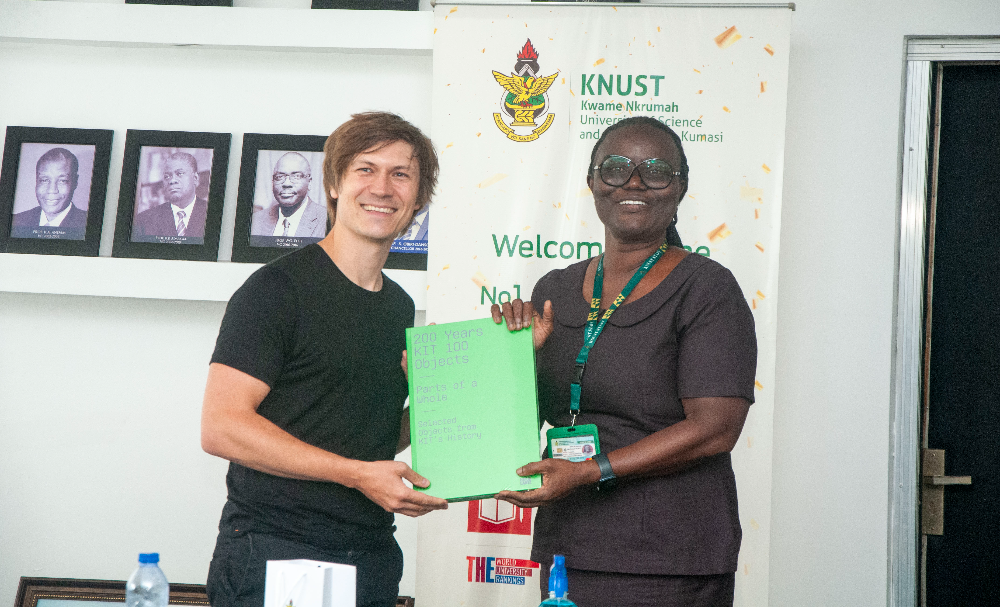The Kwame Nkrumah University of Science and Technology (KNUST), Kumasi and Karlsruhe Institute of Technology (KIT), Germany are collaborating on projects to advance sustainable construction and affordable housing in Ghana.
The partnership, anchored by the Reinterpreting Natural Building Materials (RENABUMA) workshop, aims to develop low-carbon housing systems for Ghana’s urban areas by combining renewable local resources with digital fabrication technologies.

A delegation of architecture students led by Professor Moritz Dörstelmann, who teaches digital design and fabrication at KIT, met KNUST Vice-Chancellor Prof. Rita Akosua Dickson to discuss the initiative.

Prof. Dörstelmann said the project merges sustainability research with digital construction methods to address climate and emissions challenges in the building sector.
“We are combining research in sustainable construction with digital fabrication technologies to create circular, locally sourced building materials that perform on par with conventional reinforced concrete,” he said.
He noted that technologies such as robotic prefabrication, image recognition and artificial intelligence are being applied to natural materials like bamboo and clay to reduce environmental costs while maintaining structural performance.
“The aim is not a nostalgic return to traditional construction,” he said, “but an industrial-scale adoption of natural resources for modern urban housing.”
Dickson called the initiative a vital step toward sustainability, stressing that it requires commitment, expertise and collaboration.
“Sustainability must underpin every meaningful conversation about the future,” she said. “It is a beautiful journey, but one that demands dedication if we are to make a lasting impact.”

















